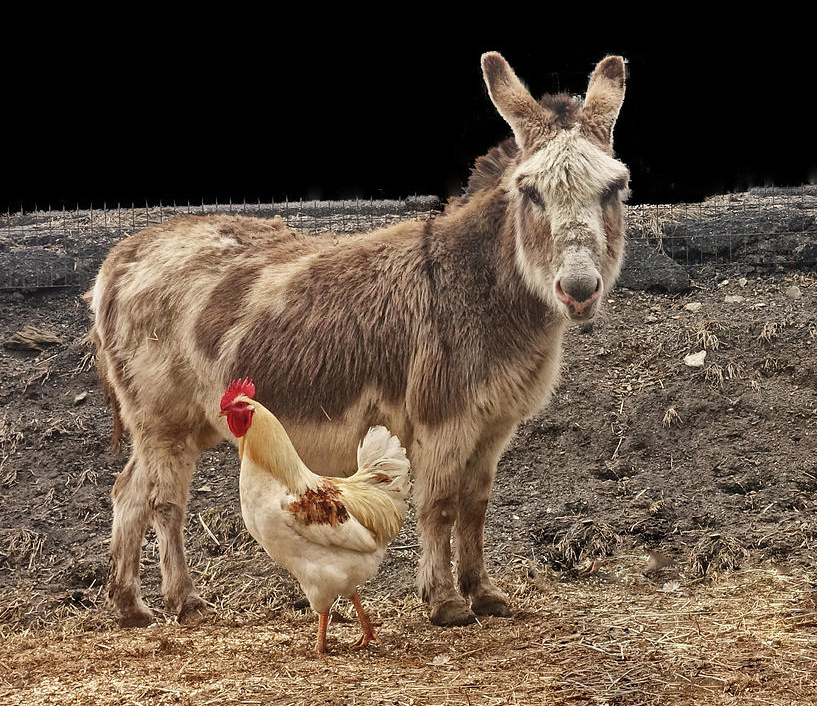
(3-4 Minute Read)
Devarim (Deuteronomy) 26:1-29:8
Bringing the first fruits of the harvest as a donation before the Almighty is the first theme discussed in the parasha, or Torah portion, of Ki Tavo. Following that, the Almighty through Moses outlined in great detail the relevant blessings and curses that come from observing or rejecting the Torah respectively. In conclusion, Moses recounted the miraculous victories provided by the Most High over King Sihon of the Amorites as well as King Og of Bashan.
When the Jewish people had been settled in the land of Israel, they were instructed by the Most High to bring the first fruits of their harvest to the place where He would chose to establish His name (i.e. Jerusalem). This practice is called bikurim, or first fruits. After giving the basket of harvest products to the kohen, or Levitical priest, the donor would then recite the following blessing:
“My father [Jacob] was a fugitive Aramean. He went down to Egypt with meager numbers and sojourned there; but there he became a great and very populous nation. The Egyptians dealt harshly with us and oppressed us; they imposed heavy labor upon us. We cried to the L-RD, the G-d of our fathers, and the L-RD heard our plea and saw our plight, our misery, and our oppression. The L-RD freed us from Egypt by a mighty hand, by an outstretched arm and awesome power, and by signs and wonders. He brought us to this place and gave us this land, a land flowing with milk and honey. Therefore I now bring the first fruits [bikurim] of the soil which You, O L-RD, have given me.” Devarim (Deuteronomy) 26:5-10

After the donation of one tenth of the yield of the initial harvest, the food was provided to the kohenim, or Levitical priests, as well as the foreigners, the orphans, and the widows. Following that, an additional declaration was made:
“I have cleared out the consecrated portion from the house; and I have given it to the Levite, the foreigner, the orphan, and the widow, just as You commanded me; I have neither transgressed nor neglected any of Your commandments. I have not eaten of it while in mourning, I have not cleared out any of it while I was unclean, and I have not deposited any of it with the dead. I have obeyed the L-RD my G-d; I have done just as You commanded me. Look from Your holy abode, from heaven, and bless Your people Israel and the soil You have given us, a land flowing with milk and honey, ans You swore to our fathers.”
Devarim (Deuteronomy) 26:13-15
One aspect of Ki Tavo that might seem peculiar at first glance is that the commandments relating to bikurim, or first fruits, are linked with several chapters of not only extraordinary blessings but also of intensely graphic curses. Similarly, the first fruits donor is required to declare that the first fruits were not donated or eaten in a state of mourning. But what is the connection?
Rabbi Yitzchak Breitowitz addresses this question at length in a recent video shiur, or Torah lesson. In summary, Rabbi Breitowitz points out that one of the greatest lessons of Ki Tavo is that we are to be thankful in all circumstances of life. In other words, no matter what our “life harvest” presents us, we are to be joyous and thankful before the Holy One, Blessed Be He. (As is obvious, this is much easier said than done.)

Relating to this principle, Judaism has often cited the traditional stories of Rabbi Nachum Ish Gamzu as well as Rabbi Akiva (of blessed memory), who lived in the first and second centuries CE. Rabbi Nachum famously quoted “Gam zeh l’tovah,” or “This, too, is for good,” (and hence the title of his name, “Gamzu”). Rabbi Akiva utilized a similar phrase that could be translated as “All that the Merciful One does, He does for good.” The Talmud gives us an illustration of this principle in action:
Rabbi Akiva was journeying to a distant city when the sun set. He had no choice but to take shelter in the woods and spend the dark night there. He lit the only candle he had. He also had a rooster with him to wake him early in the morning, and a donkey on which he rode. Eventually a strong wind blew out his candle and he remained in darkness. Then, both the rooster were attacked and killed by animals of prey. In each instance, Rabbi Akiva calmly declared, “All that the Merciful One does is for good.”
In the morning when Rabbi Akiva arrived in the nearby city he learned that a band of vicious bandits had passed through the forest and attacked the city. If they had discovered Rabbi Akiva in the forest, they would have no doubt violently hurt or even murdered the Jewish sage. Although it hardly seemed like it at the time, it was actually an act of “Providential goodness” that the candle was blown out so they didn’t see the flame, that rooster could not crow, and that the donkey could not bray.
The philosophy of Rabbi Nachum Ish Gamzu and Rabbi Akiva therefore relate to the custom of bikurim, or first fruits, in that we are commanded to be thankful and joyous in all circumstances, no matter what the Almighty allows to happen in our lives.

Taking this concept a step further, this same unconditional gratitude to the Eternal One applies not only to the blessings that come from following the Torah, but even for the curses that result from disobedience. In short, even the curses are ultimately for our benefit. The purposes of the consequential curses is not sadistic punishment by a wrathful Supreme Being. Rather, they are designed to ultimately bring the Jewish people closer to the Eternal One through the Torah. An example of this idea can be seen in Jeremiah 29:11, a passage that is often quoted for encouragement:
“For I am mindful of the plans I have made concerning you, declares the L-RD, plans for your welfare, not for disaster, to give you a helpful future.”
In many cases, some people quote this verse as encouragement that the Most High will not bring any negativity into a person’s life, and certainly not a calamity. In reality, Jeremiah was recording the words of the Master of the Universe after He had enabled the Babylonians to exile much of the Jewish people, and soon Nebuchadnezzar would completely destroy Jerusalem and slaughter countless men, women, and children in the streets. The message of Jeremiah was not that the Almighty would prevent us from experiencing hardship and tragedy in our lives. Rather, the Most High was informing us that even calamities and disasters are ultimately destined to result in our benefit, even if we cannot comprehend how or why. Or, as Rabbi Akiva stated, “All that the Merciful One does is for good.”
May the Holy One, Blessed Be He, provide us with “bountiful harvests” (both literally and figuratively), and may we joyously donate from those harvests to our spiritual infrastructure and to those in need. And may we also remember that everything that the Almighty does is for the best, even when it seems impossible to understand how or why, or to acknowledge that fact.


